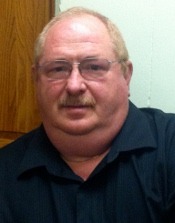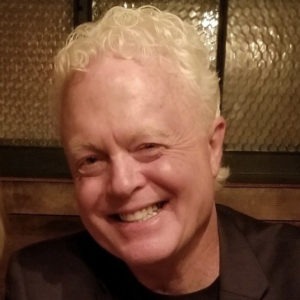Strive for perfection, settle for excellence
As they drove in through the gates, the team of three state surveyors sensed that something was amiss. They parked and walked towards the front door. Their concern mounted as they noted the strange silence and the absence of any human or animal presence. Then they saw the big sign on the door: “Gone Camping!”
There was not a soul around, except a meek young girl who greeted the surveyors with a megawatt smile. “I am the only one here,” she informed them—now more annoyed than amused. “Chris took them all camping. They will be back on Monday.” That was quintessential Chris Mason.
Then in his mid-twenties, Chris Mason was administrator of this Alabama nursing home, whose 110 residents had often benefited by his unfettered imagination that saw the world not the way it is, but the way it should be. In this case, it was Barry, a young resident—a quadriplegic from a sad accident—who one day confided to Chris that camping was his fondest childhood memory and what he now missed most. Chris did the research and located a camping program friendly to the frail and disabled. Convinced that it was the spirit of the law that was prodding him, he packed up his entire community and went camping. The surveyors, however, located his whereabouts, showed up, and commenced the inspection at the campsite. Chris was right. The same spirit was at work again; they handed him a deficiency-free survey.
|
Chris Mason is my friend. Our mutual interest in research had brought us together. However, I have rejoiced in his friendship particularly because Chris is the living proof of the truth that I have advocated all my life: “Good quality is good business.” This motto neatly dovetailed into his personal watchword: “Strive for perfection and settle for excellence.”
Excellence is, indeed, its own reward; it stokes your pride and does wonders to your heart. Excellence also rewards you in tangible ways. In the best of nursing homes, residents and families become strong advocates and partners in care. The census shows a healthy share of the prized Medicare and private pay customers. Satisfied families improve their home’s accounts receivables—they pay bills on time; and they loathe even the thought of suing their caregivers. Model nursing homes reach the summit by the dint of their committed staff. Commitment is the staff response to managers who genuinely care for them, set them up for success and give them every reason to be and to do their best. A safe, friendly and fun work setting that managers create neutralizes the reasons why staff become alienated, inflate worker’s comp claims, or do not show up for work. A friendly environment nurtures warm bonds—the beginning of a close-knit community where all face in the same direction and everyone looks out for each other.
Nowhere has the axiom “Good quality is good business”found a truer incarnation than in Chris Mason.
FROM ASHES TO EXCELLENCE
Chris’s penchant to strive for excellence and then to savor its rewards was illustrated dramatically in the case of Jefferson Manor, an assisted living community in Dallas, Ore. It was on its last legs and tottering. Only 35 residents lived in the aging building certified to serve 70. Eighty percent of them were losing weight. Staff turnover topped 200 percent. It was hemorrhaging $20,000 a month. State surveyors cited 41 pages of deficiencies confirming that Jefferson Manor was in the throes of a quality meltdown and it was served notice of a mandatory closing.
A healthcare consultant alerted Chris to the dire transfer-trauma the residents faced in that small town with few long-term care choices. What happened next shows Chris Mason at his best. He conducted due diligence, pleaded with the state for a reprieve, offered a concise road map and proposed that the state partner with him in saving Jefferson. The state agreed, but demanded measurable progress in 60 days.
The rescue operations started immediately. Strict guideposts kept them in focus—always put people first, implement systems and ensure consistency. The leader, Rebekah Gottschalk, supported by Chris and his crew, made excellence seem within reach, rallied the team, offered every help and demanded the best from each. State surveyors showed up promptly on the 60th day to inspect. They found Jefferson in substantial compliance.
With that head of steam, the Jefferson train chugged confidently forward and upward. Quest for Excellence, a series of checklists used to build quality care, is a Chris Mason invention. Each completed activity is logged and check-marked, keeping the organization on track and moving in the right direction. Jefferson made a quantum leap when it opened its doors to state-of-the-art technology. It made it possible to match resident acuity to staff expertise in order to optimize staff allocation; it enabled families to track resident progress, activity and sleep patterns; it automated medication processes and pharmacy functions; it reduced errors, relieved staff of routine chores, assigned them greater responsibility and generally made the workplace efficient and congenial.
The results affected every department. Resident satisfaction rose. Better informed, families became more engaged. As work became meaningful and commitment brought joy, staff stabilized and absenteeism became rare. Except for payroll, costs fell markedly throughout Jefferson. All in all, technology served as the midwife that eased the birth of the culture of excellence at Jefferson and it rose, phoenix-like, from the ashes and kept rising until it joined the small company of the most advanced dementia care centers in the United States. In less than a year, its asset value rose 240 percent.
FLIGHTS OF IMAGINATION
Mason’s passion for person-directed quality, his faith in technology that it would lead long-term care to newer heights and his sharp entrepreneurial instinct keep him ever alert to new challenges that may arise. A string of innovations bears testimony to his uncanny expertise—to turn dreams into products that add quality to life.
One day, Gloria, a woman in her 30s, told Chris that she was discouraged. Despite working hard hours for long years in the nursing home, despite cutting discretionary spending and saving every spare penny, she was still far from realizing her dream of buying a house. The down payment she could afford and her credit rating did not add up to qualify as a buyer. Chris did not see a ready solution, so he invented one. He looked at Grace’s work history—impeccable. He added up her unused days of paid leave—impressive. He factored in her per-week overtime—substantial. He blended them and distilled a credible formula. He walked over to the bank and explained to them Gloria’s work ethic, that she would put in extra hours, and would turn her unused paid-leave into cash. He laid out his formula with the numbers all pointing in one direction: Gloria poses negligible risk; she is creditworthy. Conclusion: Gloria bought her house. And thereby was born the house-ownership program that has helped other Glorias attain their dream.
Chris has left his mark in many LTC fields: analytic software, training for managers, support for startup entrepreneurs, forming partnerships to acquire and to turn around distressed properties, fostering neighborhood volunteer service, brain status therapy. His newest project is an imaginative “mystery shopping” approach to help LTC homes to conduct institutional assessment.
With all these preoccupations, Chris Mason is not a starchy sort or someone in a big hurry. He is a bubbly personality; he expounds heartily on matters he knows and listens with curiosity and interest when you broach topics less familiar to him. He serves on his church council and has been its president, he was the head coach for Oregon Junior Baseball and the Boys Scout of America has honored him with an award.
This column, “Exemplars in LTC,” spotlights the unseen programs and unsung heroes that make a difference in long-term care but operate below the radar, undetected by the media and unappreciated by the public. I find it satisfying to draw attention to these exemplars among us. The pleasure is doubled when the subject I salute here is also my friend.
Please let me know if you have such a friend or know an exemplar that deserves the limelight. You may tip your hat to Chris at chrism@vigilan.com.
V. Tellis-Nayak, PhD, is a medical sociologist is a researcher at My InnerView. He has been a university professor, has conducted research in the United States and abroad, and has authored books and articles. He can be reached at vtellisn@gmail.com.
Related Articles
Topics: Articles , Leadership












